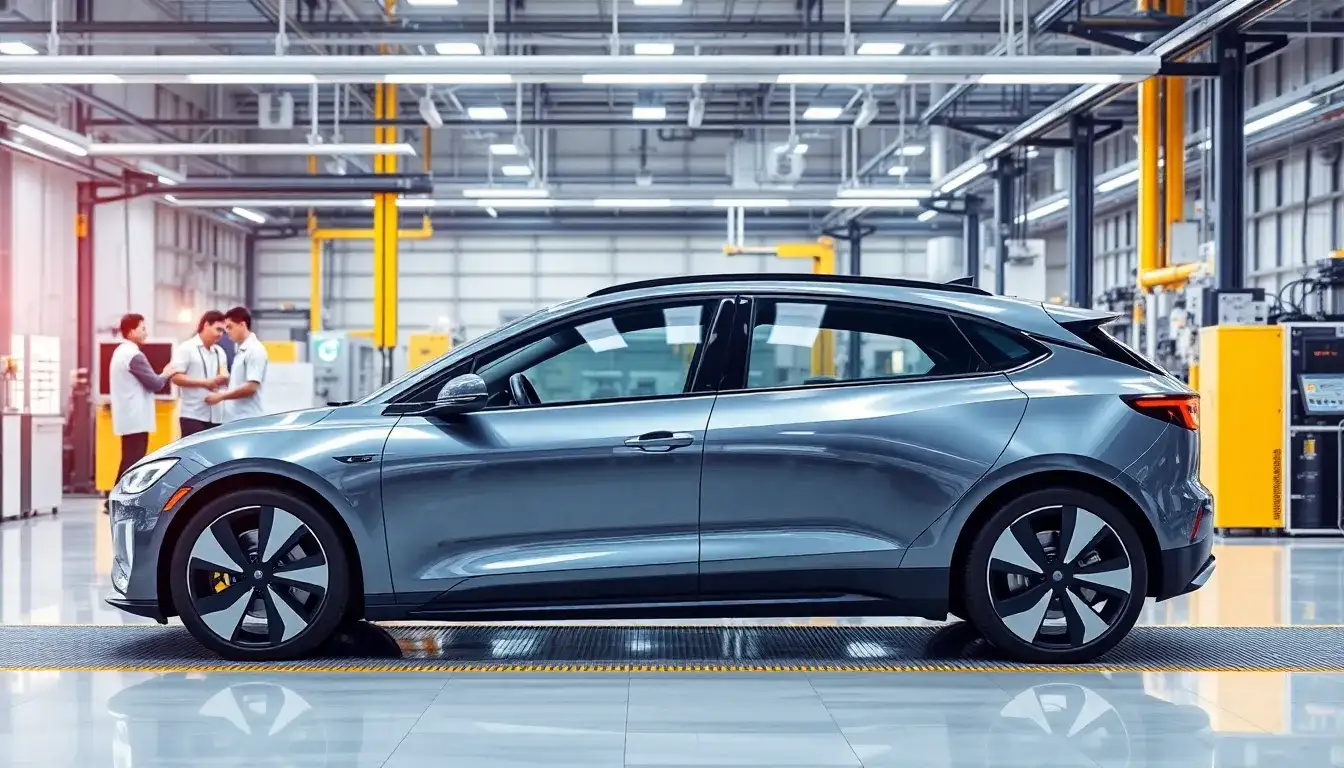
The full solid-state battery industry is making rapid advancements. In the coming years, the next generation of solid-state batteries is expected to be commercialized. However, Ouyang Minggao, an academician at the Chinese Academy of Sciences, recently warned the industry at the 2025 China Electric Vehicle 100 Forum about the disruptive risks associated with solid-state battery technology.
Currently, the global battery industry is at a critical juncture. Ouyang noted, “This situation is reminiscent of the earlier choices between nickel-hydride batteries and lithium-ion batteries, where initial issues with lithium-ion technology raised doubts about its viability. Ultimately, the lithium-ion battery industry emerged successful. Similarly, there was intense debate over hybrid versus pure electric vehicles, but pure electric technology ultimately prevailed.”
Many countries are now investing heavily in solid-state batteries, aiming to overtake China’s leading lithium battery industry. Zhu Xingbao, chief scientist at Guoxuan High-Tech, highlighted that countries like the United States, Germany, France, Japan, and South Korea are exploring various technological routes for solid-state batteries, including sulfides, halides, and oxides. Most international efforts began between 2016 and 2018. Zhu stated, “Many people ask me whether solid-state batteries will disrupt current liquid batteries. From this perspective, there is indeed a potential for disruption, as countries are seeking to leapfrog our liquid power batteries with next-generation technologies.”
China has a longstanding tradition of being proactive in the face of potential challenges. The investment from Chinese companies in solid-state batteries is comparable to that of their foreign counterparts. Notable Chinese manufacturers and battery companies, including BYD, Changan Automobile, Dongfeng Motor, Geely, GAC Aion, CATL, and many others, are actively pursuing solid-state battery technology.
In recent years, China’s solid-state battery industry has entered a fast track of development. Shi Jianpeng, vice president of the Dongfeng Motor R&D Institute, pointed out that current advancements in solid-state battery technology are reshaping the entire industry chain, with many vehicle manufacturers and battery companies accelerating their involvement. The technological pathway is becoming clearer, and breakthroughs in material systems are emerging.
According to Ouyang, 2024 is expected to be a milestone year for China’s solid-state batteries. He noted that most major domestic automotive and battery companies are now focusing on solid-state battery technology based on sulfide electrolytes, targeting a battery energy density of around 400Wh/kg with high-nickel ternary cathodes and silicon-carbon anodes. This aims to surpass traditional liquid and hybrid batteries while enhancing the safety of high-nickel ternary batteries to the level of lithium iron phosphate batteries.
“The commercialization of solid-state batteries is projected to begin between 2027 and 2028, with mass production expected by 2030,” Ouyang predicted. He also emphasized that to achieve 500Wh/kg for vehicle solid-state batteries, breakthroughs in lithium anode technology are necessary, which may require the support of AI-based material research platforms. “The expected timeline for commercialization is around 2030 to 2035, with a five-year uncertainty period,” he added.
Despite being a promising technology, solid-state batteries face several challenges. Sun Shigang, another academician from the Chinese Academy of Sciences, identified two fundamental issues: lithium metal dendrites and the capacity decay of high-voltage cathode materials. Shi also pointed out that solid-state batteries face significant challenges in developing high-performance electrodes, composite electrolyte membranes, stable interfaces, and manufacturing processes. The industry must pursue progressive innovations and phased breakthroughs to address these technical hurdles.
The solid-state battery market is highly competitive, with enormous future potential. According to China Merchants Securities, global demand for solid-state batteries is expected to reach 44.2GWh by 2025 and 494.9GWh by 2030. Guohai Securities predicts that solid-state battery shipments will grow rapidly, with the market potentially exceeding 150 billion yuan by 2030.
During the forum, various companies presented their solid-state battery products and R&D directions. Zhu Xingbao noted that Guoxuan High-Tech began developing semi-solid batteries in 2017 and released its first model in 2022, boasting an energy density of 360Wh/kg with a range of up to 1000 kilometers. They are set to launch a sulfide solid-state battery with a cell capacity of 30Ah in May 2024.
Hou Min, vice president of Ruipu Lanjun, shared that their focus is on multi-dimensional solid-liquid interface technology and SCL electrode design. They have developed unique “WenDing” technology that enhances product performance through structural and material innovations. They also produced a semi-solid battery with an energy density of 310Wh/kg and a volumetric energy density of 750Wh/L.
Gao Xiang, chairman of Tailan New Energy, criticized traditional lithium batteries for their reliance on additive manufacturing, which increases costs and complexity. He introduced the “4-3-2-1” concept of material reduction manufacturing, proposing a membrane-free solid-state battery technology that offers a new paradigm for innovation in power battery technology.
Pei Feng, president of Juwang Technology, emphasized the need for rapid charging capabilities similar to refueling gasoline vehicles and the importance of light weight in power batteries. He stated, “The essence of solid-state technology is to address weight issues, providing a significant contribution by improving energy density while ensuring safety.” He noted the difficulties in achieving ultra-fast charging with solid-state batteries due to the change from liquid to solid interfaces.
Xiao Chengwei, a researcher at the 18th Research Institute of the China Electronics Technology Group, stressed the need for collaborative innovation in the solid-state battery industry, stating that it cannot be achieved by a single company or research institute alone. He emphasized the importance of supporting original innovative research to maintain China’s leading position in liquid battery technology and to explore new technological avenues.







